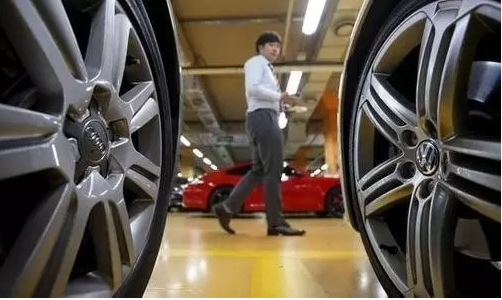Analysis: Korea’s harsh response to VW emissions case

Gasgoo.com (Shanghai) - Volkswagen’s recent scandals with covering up the extent of emissions coming out of their vehicles have raised different responses across the world. In the US, where VW gave large amounts of compensation to affected owners, the brand’s reputation still suffered, going as far as tarnishing the prestige of German automakers as a whole. By comparison, in China consumers voiced complaints that they were not receiving similar compensation to consumers of other countries. However, VW still continues to lead the Chinese market by a large margin, as the brand dominates a huge share of the Chinese market.
South Korea’s response to VW was much more strict. After a year-long investigation, the Korean government publically announced the results of two studies on emissions and consumer fraud. The fines and punishments that the government imposed on VW, which included a ban on sales of over 80 VW models, were so severe that VW may end up leaving the Korean market. Several VW showrooms have been forced to close their doors, while dealerships are limited to providing after sales maintenance service and making used car sales.
To regain permission to sell its vehicles in the country, VW is required to undergo a number of certifications, including multiple inspections of its research labs by the Ministry of Environment. This process would require a long amount of time to complete. Appealing the decision is also an unfavorable option, as a number of legal and consumers’ rights groups are already against VW.
Many in the Chinese automobile industry, where VW’s actions have had almost no notable negative repercussions in terms of sales, are pointing to Korea’s response as a model example. By being so strict on VW, the Korean government has showed that its laws absolutely must be obeyed by all companies, including powerful foreign brands like VW, Audi and Bentley. Both diesel and petrol-powered models have been targeted equally for circumventing emissions standards.
The Korean government made its decision despite the fact that it receives a huge amount of taxes from the import of VW vehicles. Despite internal pressure, the fact that the government was willing to make this bold step is a sign that any manufacturers refusing to obey local laws will not have it easy in the country regardless of how large or powerful they may be.
Furthermore, despite the fact that Chinese emissions standards are stricter than they have been in the past, they still lag behind more developed markets in terms of harshness and implementation. There are many cases of vehicles which would be barred from use in other countries having no problems being driven in China. Clearly, China has a long way to go before it can reach the same level of maturity as Korea and other developed markets.
Gasgoo not only offers timely news and profound insight about China auto industry, but also help with business connection and expansion for suppliers and purchasers via multiple channels and methods. Buyer service:buyer-support@gasgoo.comSeller Service:seller-support@gasgoo.com








